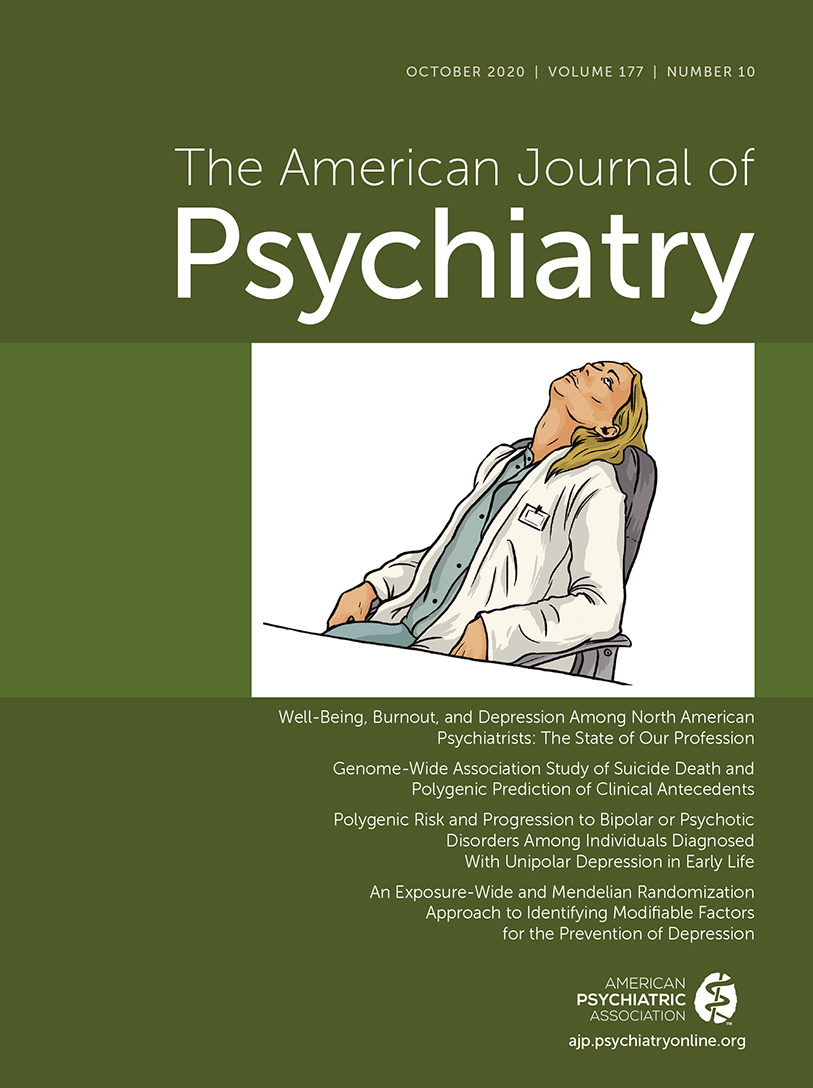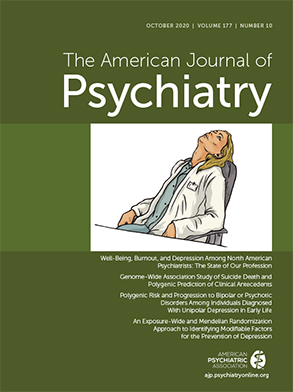An Exposure-Wide and Mendelian Randomization Approach to Identifying Modifiable Factors for the Prevention of Depression
Abstract
Objective:
Methods:
Results:
Conclusions:
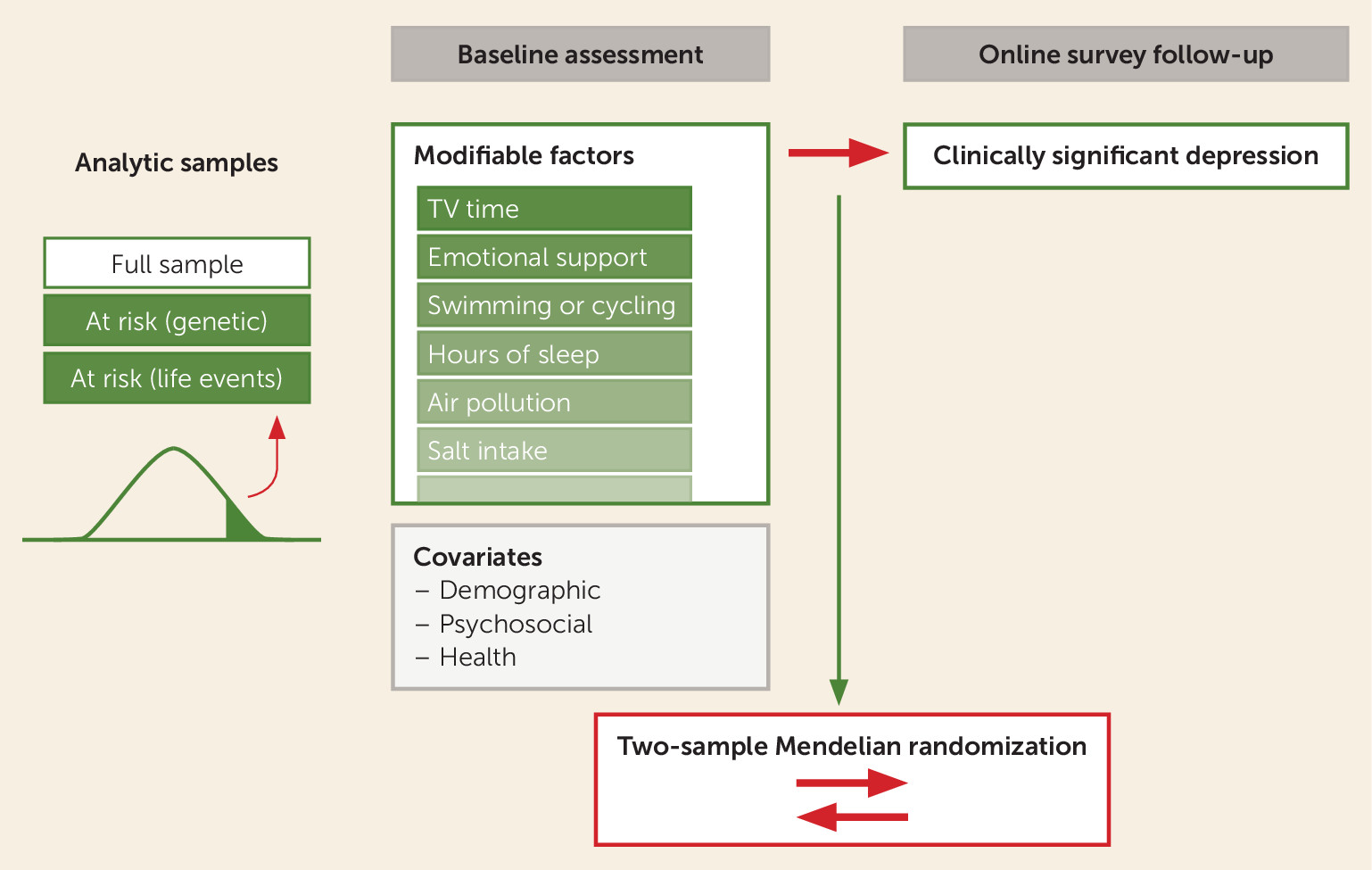
Methods
Measures
Incident Depression.
Modifiable Factors.
Traumatic Life Experiences.
Covariates.
Polygenic Risk Scoring
Stratifying Participants at Risk for Incident Depression
Exposure-Wide Association Scan
Mendelian Randomization Analyses
Results
Modifiable Factors Prospectively Associated With Incident Depression in the Full Sample
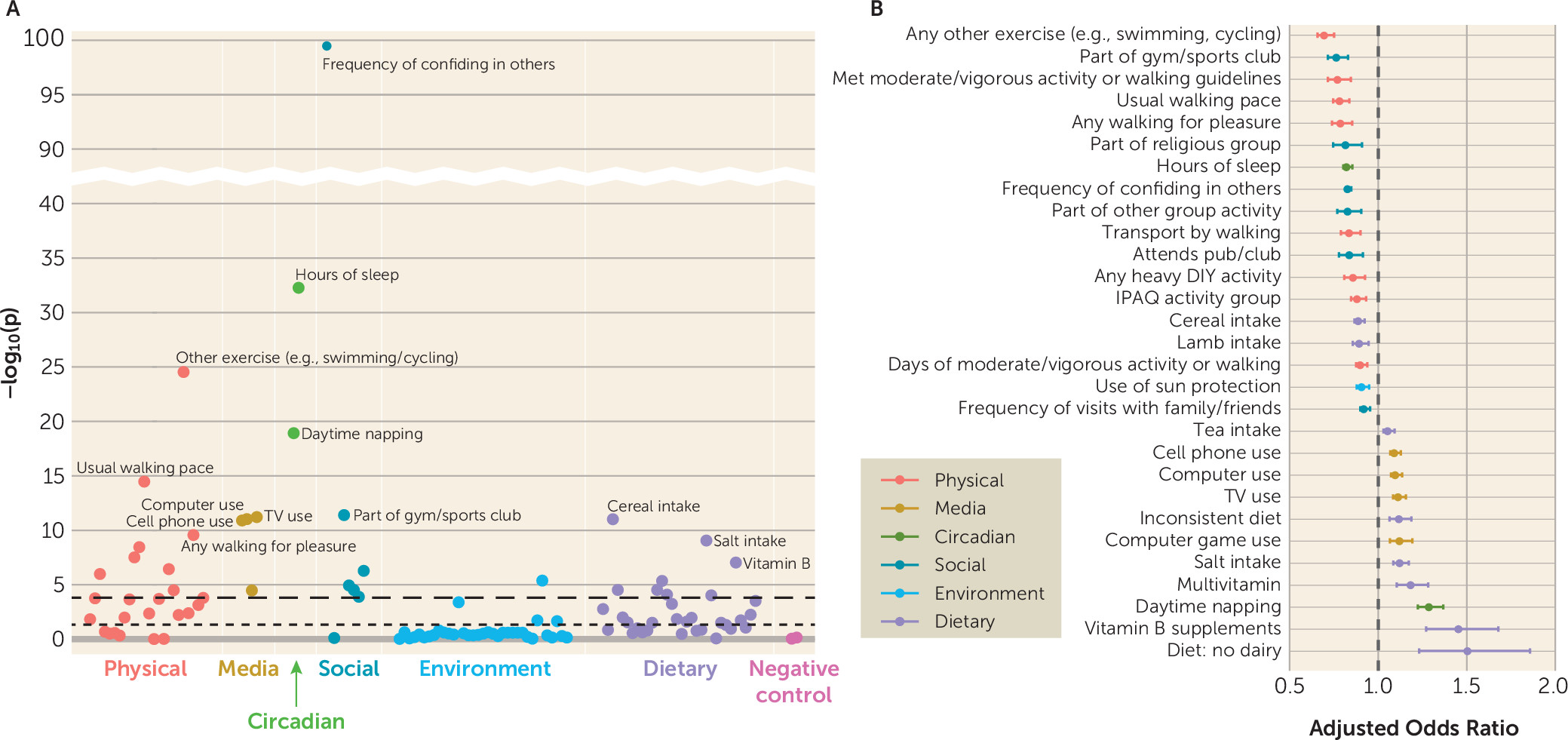
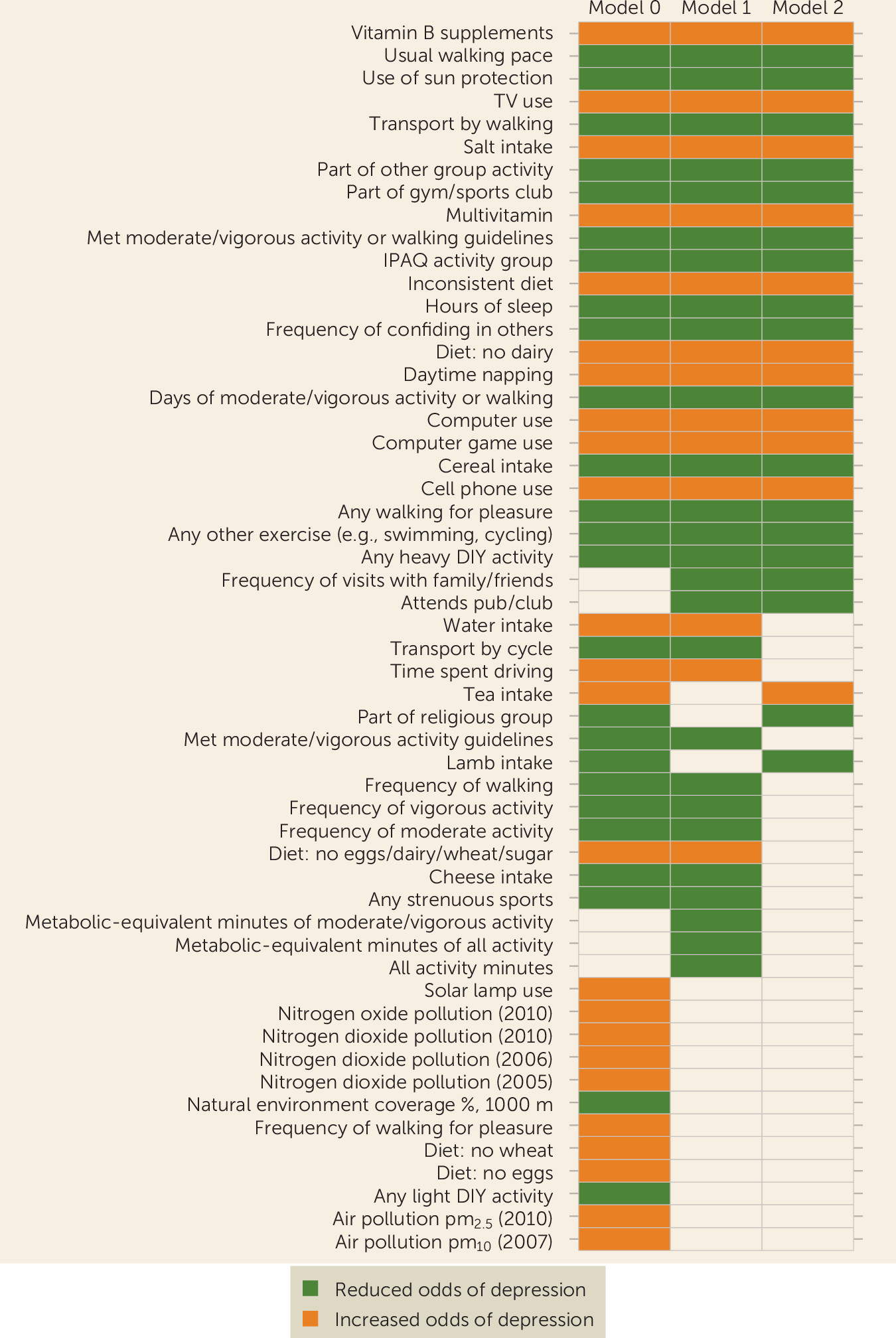
Factors Associated With Depression Among At-Risk Individuals Based on Polygenic Risk
Factors Associated With Depression Among Individuals at Risk Based on Traumatic Life Events
Follow-Up Mendelian Randomization Analyses
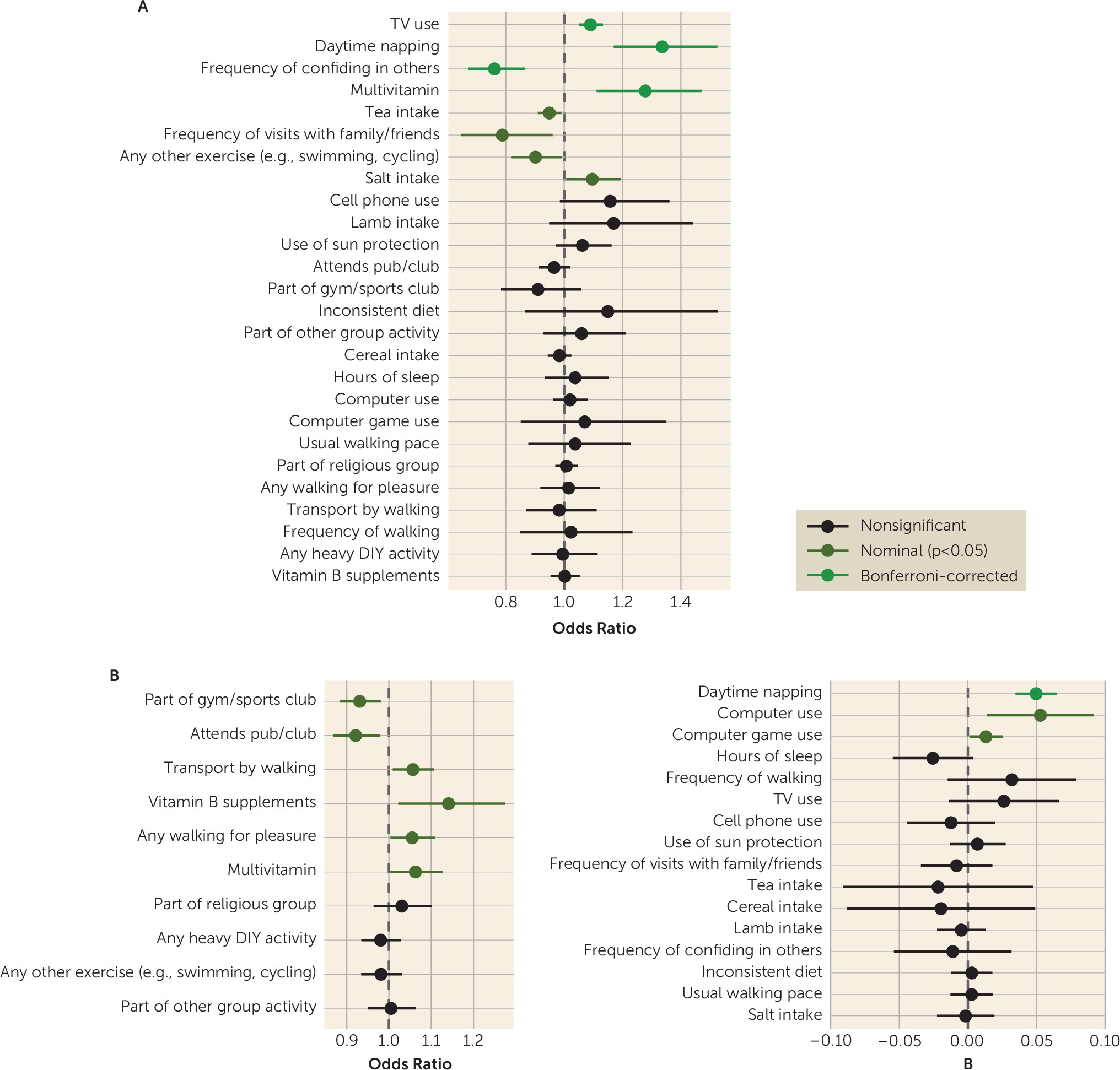
Discussion
Conclusions
Acknowledgments
Acknowledgments
Footnote
Supplementary Material
- View/Download
- 404.76 KB
- View/Download
- 2.03 MB
- Download
- 46.70 KB
- Download
- 123.70 KB
- Download
- 17.68 KB
- Download
- 460.29 KB
- View/Download
- 2.03 MB
- View/Download
- 404.76 KB
- Download
- 46.70 KB
- Download
- 123.70 KB
- Download
- 17.68 KB
- Download
- 460.29 KB
References
Information & Authors
Information
Published In
History
Keywords
Authors
Competing Interests
Metrics & Citations
Metrics
Citations
Export Citations
If you have the appropriate software installed, you can download article citation data to the citation manager of your choice. Simply select your manager software from the list below and click Download.
For more information or tips please see 'Downloading to a citation manager' in the Help menu.
View Options
View options
PDF/EPUB
View PDF/EPUBLogin options
Already a subscriber? Access your subscription through your login credentials or your institution for full access to this article.
Personal login Institutional Login Open Athens loginNot a subscriber?
PsychiatryOnline subscription options offer access to the DSM-5-TR® library, books, journals, CME, and patient resources. This all-in-one virtual library provides psychiatrists and mental health professionals with key resources for diagnosis, treatment, research, and professional development.
Need more help? PsychiatryOnline Customer Service may be reached by emailing [email protected] or by calling 800-368-5777 (in the U.S.) or 703-907-7322 (outside the U.S.).
